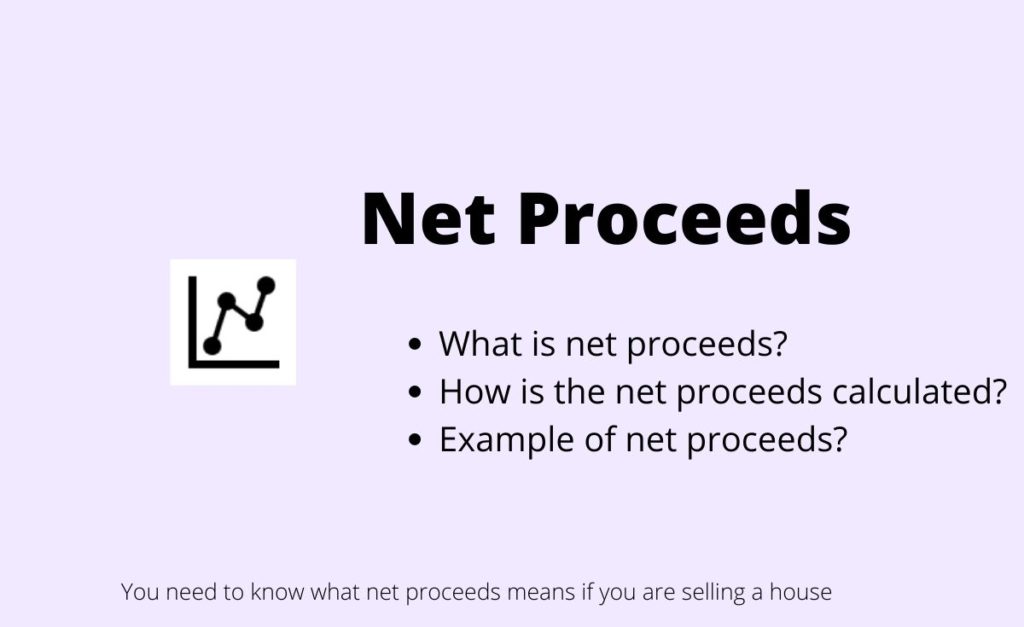What does net proceeds mean?
The net proceeds are the amount of money a seller of an asset keeps after all expenses are paid off. In real estate, the net proceeds are equivalent to the amount a seller takes home after selling a house. All expenses must be deducted from the gross proceeds when computing the net proceeds.
Expenses to be paid by the seller
Once the seller receives a final offer and the sale is finalized, there are important expenses that must be deducted from the sale price before the seller pockets the money. For example, if a seller is selling the house before all liens are taken care of, each entity that holds the lien will be paid first.
The following are expenses related to the sale of the property to be covered by the seller.
- Liens and outstanding balances on the mortgage
- Commissions (both the buyer’s agent and seller’s agent)
- Closing costs if the sellers agreed to contribute to these costs
- Excise tax
How to calculate the net proceeds
To calculate the net proceeds, you will need to know the sale price of an asset. Next, you will need to subtract all expenses related to the sale of the property. For example, the seller of a home must subtract the expenses we listed above before coming to the net proceeds.
Example of net proceeds
Let’s say that Mark bought his house for $300,000 last year and recently sold it for $400,000. Let’s also assume that he had a $50,000 outstanding mortgage balance on the house. From this sale, we are going to estimate what his net proceeds will be.
We know that the net proceeds are the final amount a seller retains after all expenses are paid. So, let’s start by subtracting all expenses from the gross proceeds (sale price).
- Outstanding mortgage balance: $50,000
- Commission: $24,000 (5%-6% is the average commission rate in real estate and they are paid by the seller). So, we are using 6% for the sale of this property.
- Closing costs: $8,000. The average costs are generally between 3%-6%. We are assuming that the seller is motivated, and therefore, contributing 50% to the total closing costs. In our example, we are also assuming that the closing costs are 4%. So, the seller will pay half of the total closing costs.
- Excise tax: This tax will vary from state to state and the value of the property. So, let’s assume $2,000.
- Total expenses = $50,000 + $24,000+ $8,000+$2,000 = $84 000
Since there are no other expenses associated with this sale, we can go ahead and calculate the net proceeds.
NET PROCEEDS = $400,000 – $84,000 = $316 000
You can see that even if the sale price was $400,000, the seller of the property took home only $316,000.
In addition, the seller of the house must pay tax on capital gain on this sale. The capital gain is the difference between what the property was bought for and the profit made after all expenses are subtracted from the sale price.
In our example, the seller bought the house for $300,000 and took home $316,000. In this case, the capital gain on the property is $16,000 and the seller will pay tax on this amount. The tax will vary from one state to another.









